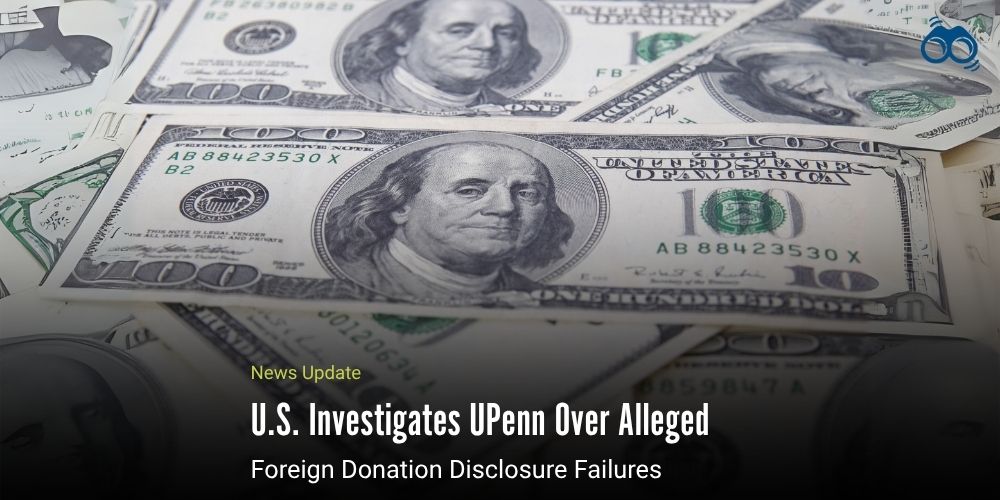Higher Education Under Watch: U.S. Crackdown on Foreign Donations Intensifies
Department of Education Demands Answers on University of Pennsylvania's Foreign Links
In a staggering revelation, recent data shows that U.S. universities received over $3.8 billion in foreign gifts and contracts between October 2023 and February 2024, with major contributions coming from China, Saudi Arabia, Qatar, Switzerland, and the United Kingdom. The sheer scale of these financial inflows raises critical concerns about transparency and oversight, prompting renewed scrutiny of elite institutions and their foreign financial ties. Against this backdrop, the U.S. Department of Education announced on 8 May that it had launched an investigation into the University of Pennsylvania, alleging that the Ivy League institution had submitted foreign donation disclosures that were either inaccurate or delayed. The inquiry raises serious questions about compliance with federal reporting laws, which require universities to report foreign donations exceeding $250,000 annually.
In response, federal authorities have directed the University of Pennsylvania to submit tax records dating back to 2017, along with details of foreign agreements and information on staff linked to foreign governments—all within 30 days. This latest probe further amplifies concerns over how much foreign influence is embedded within U.S. higher education and whether institutions are fully transparent in their financial dealings.
Meanwhile, the broader issue of higher education policies under the Trump administration continues to be widely debated. Reports indicate that Trump’s government adopted an aggressive stance towards elite universities, particularly those supporting pro-Palestinian protests, climate efforts, diversity programmes, and transgender rights. This approach was reinforced in March, when federal authorities suspended $175 million in funding to the University of Pennsylvania, citing concerns over its transgender athlete policy. The Education Department later alleged that the institution’s stance violated federal laws prohibiting sex-based discrimination in federally funded programmes.
The University of Pennsylvania, which was previously involved in a high-profile case concerning a transgender swimmer in 2022, has insisted that it adheres to NCAA and Ivy League athletic policies and remains fully compliant with federal regulations. Following Trump’s executive order banning transgender athletes from female-only sports, the NCAA subsequently updated its rules, restricting participation to those assigned female at birth.
In a related development, the Trump administration reportedly sought records from Harvard University last month. Officials requested details of Harvard’s foreign funding over the past decade, along with information on specific foreign affiliations. As scrutiny over financial disclosures, university policies, and federal oversight intensifies, the investigation into the University of Pennsylvania adds yet another dimension to the ongoing debate on higher education governance in the United States. The outcome of this inquiry could have lasting implications for academic institutions across the country.
Editor’s Note:
The ongoing investigation into the University of Pennsylvania highlights growing concerns around the lack of transparency in foreign funding within U.S. higher education. While many universities claim to be transparent, the truth is that billions of dollars from foreign sources enter American institutions each year, often with minimal oversight or disclosure. The Trump administration’s recent actions against leading universities—whether seen as legitimate or politically driven—have brought renewed attention to critical issues such as financial accountability, ideological influence, and the broader role of universities in shaping national discourse. Harvard University has also been asked to provide records of foreign funding over the past ten years, reflecting an increased level of government scrutiny on elite academic institutions. Universities often argue that international partnerships contribute to research and global engagement; however, critics caution that insufficient regulation of such funding may threaten academic independence and even national security.
Skoobuzz asserts that as the Department of Education’s inquiry moves forward, universities must take proactive steps to strengthen their financial reporting practices and ensure full compliance with federal regulations. More importantly, they should prioritise transparency and accountability—not just to satisfy legal requirements, but to uphold the integrity and global standing of American higher education.














0 Comments (Please Login To Continue)